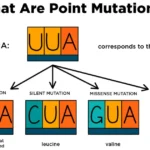Losing a loved one is never easy, and dealing with their estate afterward can feel overwhelming. One question that often comes up is: how much does an estate have to be worth to go to probate? The answer isn’t always straightforward because it depends on where you live, the type of assets involved, and specific state laws. In this article, I’ll break it all down in a way that’s easy to understand, no matter your age or experience with legal matters. We’ll also include a handy table summarizing probate thresholds across the U.S. to make things even clearer.
By the time you’re done reading, you’ll have a solid grasp of what probate is, when it’s required, and how estate value plays a role. Let’s dive in!
What Is Probate, Anyway?
Before we get into dollar amounts, let’s talk about what probate actually is. Probate is the legal process that happens after someone passes away to settle their estate. It involves validating their will (if they had one), identifying their assets, paying off any debts or taxes, and distributing what’s left to the heirs or beneficiaries. Think of it as the court’s way of making sure everything is handled fairly and legally.
Not every estate goes through probate, though. Whether it does depends on factors like the estate’s value, how assets are owned, and whether there’s a will. The value of the estate is a big piece of the puzzle, so let’s explore that next.
how much does an estate have to be worth to go to probate?
The value of an estate often determines whether it needs to go through probate because many states have “how much does an estate have to be worth to go to probate” rules. These rules allow smaller estates to skip the full probate process, saving time and money. Why? Because smaller estates typically have fewer complications, and courts don’t want to clog up the system with cases that can be handled more simply.
Each state sets its own threshold for what qualifies as a “small estate.” If the estate’s value is below this amount, you might be able to use a simplified process (like a small estate affidavit) instead of full-blown probate. If the estate is worth more than the threshold, formal probate is usually required.
What Counts Toward the Estate’s Value?
When figuring out an estate’s value for probate, not all assets are counted the same way. Here’s a quick rundown:
-
Probate Assets: These are assets owned solely by the deceased person that don’t automatically transfer to someone else. Examples include:
-
Bank accounts in the deceased’s name alone
-
Real estate titled solely in their name
-
Personal belongings like cars, jewelry, or furniture
-
Investments or stocks held individually
-
-
Non-Probate Assets: These don’t count toward the estate’s value for probate because they transfer directly to someone else. Examples include:
-
Jointly owned property (like a house with “right of survivorship”)
-
Life insurance policies with a named beneficiary
-
Retirement accounts or bank accounts with a “payable on death” (POD) designation
-
Assets held in a living trust
-
To calculate the estate’s value for probate, you only count the probate assets. Add up their fair market value at the time of death, subtract any debts tied to those assets (like a mortgage), and you’ve got the “net estate value.” That’s the number you compare to your state’s probate threshold.
how much does an estate have to be worth to go to probate Threshold?
Here’s where things get a bit tricky: there’s no universal dollar amount for when probate is required. Each state has its own rules, and the threshold can vary widely. Some states set the limit as low as $10,000, while others go as high as $200,000. Below, I’ve put together a table summarizing the small estate probate thresholds for all 50 states and Washington, D.C. (based on the most recent data available as of September 2025). If an estate’s value is below these amounts, you may be able to use a simplified process or avoid probate altogether.
Table: Small Estate Probate Thresholds by State (2025)
|
State |
Small Estate Threshold |
Notes |
|---|---|---|
|
Alabama |
$25,000 |
Simplified probate for estates under $25,000 with no real property. |
|
Alaska |
$50,000 |
$50,000 for personal property; $100,000 for real property. |
|
Arizona |
$75,000 |
For personal property; $100,000 for real estate. |
|
Arkansas |
$100,000 |
Small estate affidavit available. |
|
California |
$184,500 |
Adjusted periodically for inflation. |
|
Colorado |
$80,000 |
Threshold applies to personal property and real estate. |
|
Connecticut |
$40,000 |
Small estate affidavit process available. |
|
Delaware |
$30,000 |
No real property included in small estate. |
|
Florida |
$75,000 |
Summary administration for estates under $75,000 or exempt estates. |
|
Georgia |
No specific limit |
Simplified process depends on court discretion; no formal threshold. |
|
Hawaii |
$100,000 |
Small estate affidavit for personal property. |
|
Idaho |
$100,000 |
Includes real and personal property. |
|
Illinois |
$100,000 |
Small estate affidavit process. |
|
Indiana |
$100,000 |
Threshold raised in 2022; affidavit process available. |
|
Iowa |
$50,000 |
Small estate administration for estates under $50,000. |
|
Kansas |
$40,000 |
Simplified probate process available. |
|
Kentucky |
$30,000 |
Small estate affidavit for personal property. |
|
Louisiana |
$125,000 |
No probate if estate qualifies as “small succession.” |
|
Maine |
$40,000 |
Small estate affidavit process. |
|
Maryland |
$50,000 |
$100,000 if the spouse is the sole heir. |
|
Massachusetts |
$25,000 |
Plus a vehicle; simplified process available. |
|
Michigan |
$27,000 |
Adjusted annually for inflation. |
|
Minnesota |
$75,000 |
Small estate affidavit process. |
|
Mississippi |
$75,000 |
No probate required for estates under threshold. |
|
Missouri |
$40,000 |
Small estate affidavit available. |
|
Montana |
$50,000 |
Affidavit process for personal property. |
|
Nebraska |
$50,000 |
For personal property; $50,000 for real estate. |
|
Nevada |
$100,000 |
$300,000 if spouse is sole heir; affidavit process available. |
|
New Hampshire |
No specific limit |
Simplified probate based on estate complexity. |
|
New Jersey |
$50,000 |
$100,000 if spouse is sole heir; affidavit process. |
|
New Mexico |
$50,000 |
Small estate affidavit available. |
|
New York |
$50,000 |
Small estate administration for personal property only. |
|
North Carolina |
$20,000 |
$30,000 if spouse is sole heir; affidavit process. |
|
North Dakota |
$50,000 |
Small estate affidavit process. |
|
Ohio |
$35,000 |
$100,000 if spouse is sole heir; summary release available. |
|
Oklahoma |
$50,000 |
Small estate affidavit process. |
|
Oregon |
$275,000 |
$75,000 for personal property; $200,000 for real estate. |
|
Pennsylvania |
$50,000 |
Small estate affidavit for personal property. |
|
Rhode Island |
$15,000 |
Small estate administration available. |
|
South Carolina |
$25,000 |
Small estate affidavit process. |
|
South Dakota |
$50,000 |
Affidavit process for personal property. |
|
Tennessee |
$50,000 |
Small estate affidavit available. |
|
Texas |
$75,000 |
Excludes homestead and exempt property; affidavit process. |
|
Utah |
$100,000 |
Small estate affidavit for personal and real property. |
|
Vermont |
$45,000 |
Small estate administration available. |
|
Virginia |
$50,000 |
Small estate affidavit process. |
|
Washington |
$100,000 |
Small estate affidavit for personal property. |
|
Washington, D.C. |
$40,000 |
Small estate administration available. |
|
West Virginia |
$100,000 |
Small estate affidavit process. |
|
Wisconsin |
$50,000 |
Summary settlement for estates under threshold. |
|
Wyoming |
$200,000 |
Affidavit process for personal and real property. |
Note: These thresholds are based on the latest available data as of September 2025. Always check with your state’s probate court or a local attorney for the most current rules, as laws can change.
Why Do Thresholds Vary So Much?
You might be wondering why there’s such a big range in these thresholds. It comes down to state laws and priorities. States like California and Oregon have higher thresholds because the cost of living (and property values) tends to be higher, so a $50,000 estate might not seem “small” in those areas. Meanwhile, states with lower thresholds, like Rhode Island or Massachusetts, may have older laws or different economic realities.
Some states also adjust their thresholds periodically to account for inflation (like California and Michigan), while others haven’t updated theirs in years. Plus, some states have different rules for personal property (like cash or cars) versus real estate, which adds another layer of complexity.
What Happens If the Estate Is Below the Threshold?
If the estate’s value is below your state’s small estate threshold, you might be able to avoid formal probate by using a small estate affidavit. This is a legal document where you swear that the estate meets the state’s requirements for simplified handling. You typically submit it to banks, title companies, or other institutions holding the deceased’s assets to transfer them to the heirs.
Here’s how it generally works:
-
Check eligibility: Confirm the estate’s value is under the threshold and meets other state requirements (like no real estate in some cases).
-
File the affidavit: You’ll need to fill out a form (available from the probate court or online) and get it notarized.
-
Distribute assets: Present the affidavit to banks or other institutions to release the assets to the rightful heirs.
This process is faster and cheaper than formal probate, but it’s not always an option. For example, if there’s a dispute among heirs or if the estate includes complex assets, the court might still require formal probate.
What If the Estate Is Above the Threshold?
If the estate’s value exceeds your state’s small estate threshold, you’ll likely need to go through formal probate. This involves:
-
Filing a petition with the probate court
-
Validating the will (if there is one)
-
Appointing an executor or administrator to manage the estate
-
Notifying creditors and paying debts
-
Distributing the remaining assets to heirs
Formal probate can take months or even years, depending on the estate’s complexity and whether there are disputes. It can also be expensive, with court fees, attorney costs, and executor fees eating into the estate’s value.
How to Avoid Probate Altogether
Even if an estate is worth more than the small estate threshold, there are ways to avoid probate entirely:
-
Joint Ownership: Assets like bank accounts or property held jointly with “right of survivorship” pass directly to the co-owner.
-
Beneficiary Designations: Name beneficiaries on life insurance, retirement accounts, or “payable on death” bank accounts.
-
Living Trusts: Transfer assets into a trust during your lifetime. The trust owns the assets, so they don’t go through probate.
-
Gifting: Give assets away before you pass away to reduce the estate’s value.
These strategies can help keep an estate’s value below the probate threshold or bypass probate entirely, but they require planning ahead.
Real-Life Example
Let’s say your uncle passed away in Texas with $50,000 in a bank account (in his name alone) and a car worth $10,000. The total probate estate is $60,000. Texas’s small estate threshold is $75,000, so you could use a small estate affidavit to transfer the assets without formal probate. But if he also owned a house worth $200,000, the total estate value would be $260,000, pushing it over the threshold and likely requiring formal probate unless the house was jointly owned or in a trust.
Conclusion
Figuring out whether an how much does an estate have to be worth to go to probate threshold. By understanding what counts as a probate asset and checking the rules in your state (using the table above as a starting point), you can get a clearer picture of what’s required. Whether you’re dealing with a small estate that qualifies for a simplified process or a larger one that needs formal probate, planning ahead and seeking professional advice can make the process smoother.







